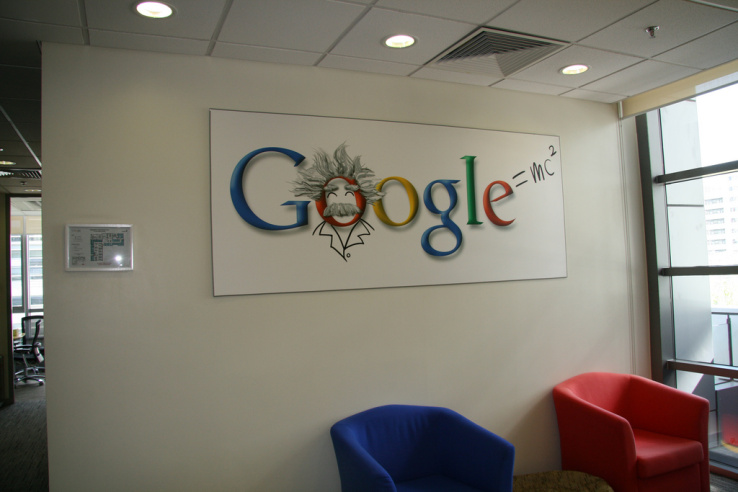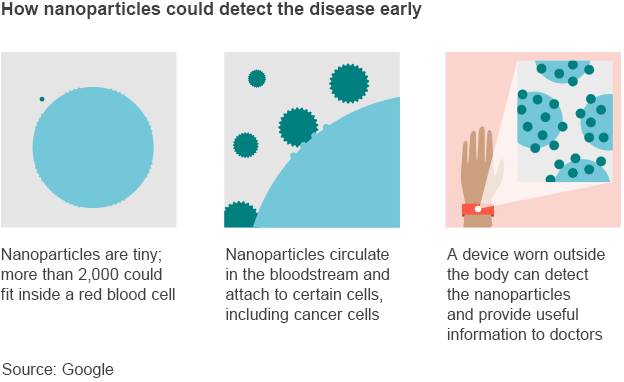
Google is developing a new technology that preemptively detects cancer using a swallowable pill and a wrist-worn sensor. The pill is filled with nanoparticles that bind to cancerous tumor cells, which are then detected by a sensor lodged in the bracelet. The project aims to monitor slight changes in a person’s biochemistry in hopes of detecting issues early on when they are still manageable, thereby shifting the approach to medicine from reactive to proactive and preventative.
The project, which is still in its infancy, is being run by Google X, Google’s research division, and is being helmed by Dr. Andrew Conrad, a molecular biologist responsible for developing an affordable HIV test widely used world-wide.
The nanoparticles being developed for the “smart pill” will be customizable to attach to specific cancerous cell signatures for a variety of markers, along with the fatty plaque threatening to break off the cell lining, thus also providing early evidence of impending heart attacks or strokes. A different set of particles will be responsible for continuously monitoring the presence of certain chemicals in the body, such as potassium, which in high levels could indicate kidney disease.
The magnetic nature of the particles enable them to be recalled to a specific spot in the wrist, under the bracelet, where their movements will be detected using light and radio waves projected from the bracelet. Since the movements of particles that are attached to cancerous cells differ from those of free particles, decoding these movements allows a diagnosis to be reached.

When it was suggested that Google is attempting to do with the human body what it did with information on the Internet, in other words, create a human body search engine, Dr. Conrad, stated that Google has no intention of commercializing or monetizing the device in that way. “We will license it out and the partners will take it forward to doctors and patients. These are not consumer devices. They are prescriptive medical devices, and you know that doctor-patient relationships are pretty privileged and would not involve Google in any way.” The company has revealed the project for the purpose of establishing partnerships.
Google X’s ambitions are undoubtedly hefty in this regard, but are they remotely feasible? BBC’s Health editor James Gallagher states that the principles mirror work already taking place in the real world; a handful of research groups are currently developing modes of detecting cancer floating in the blood, and like these groups, Google will have to address the risk of false positives. False positives often occur when diagnosing prostate cancer, as PSA levels can be heightened without the presence of cancer.
Continuously screening the body for the slightest provocation runs the risk of increasing fear and anxiety, which may lead to unnecessary treatment. Professor Paul Workman, chief executive of the Institute of Cancer Research in London, tells the BBC that there needs to be a “very careful and rigorous analysis” before this type of blood monitoring could be used widely. However, if the technology proves fruitful, users will have greater control over the outcome of their destinies.
Via BBC
Advertisement
Learn more about Electronic Products Magazine





